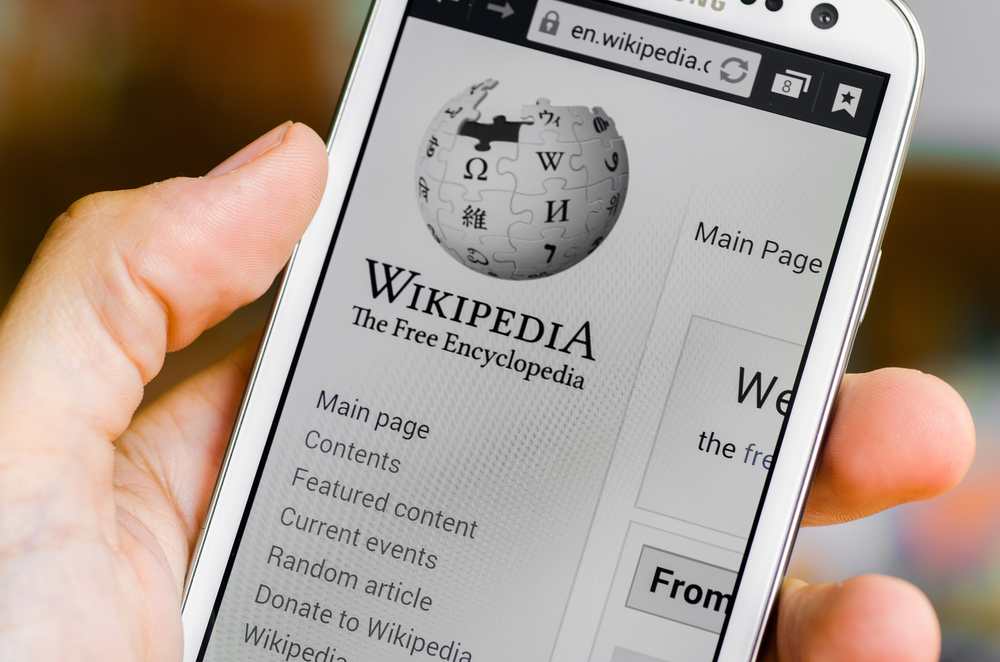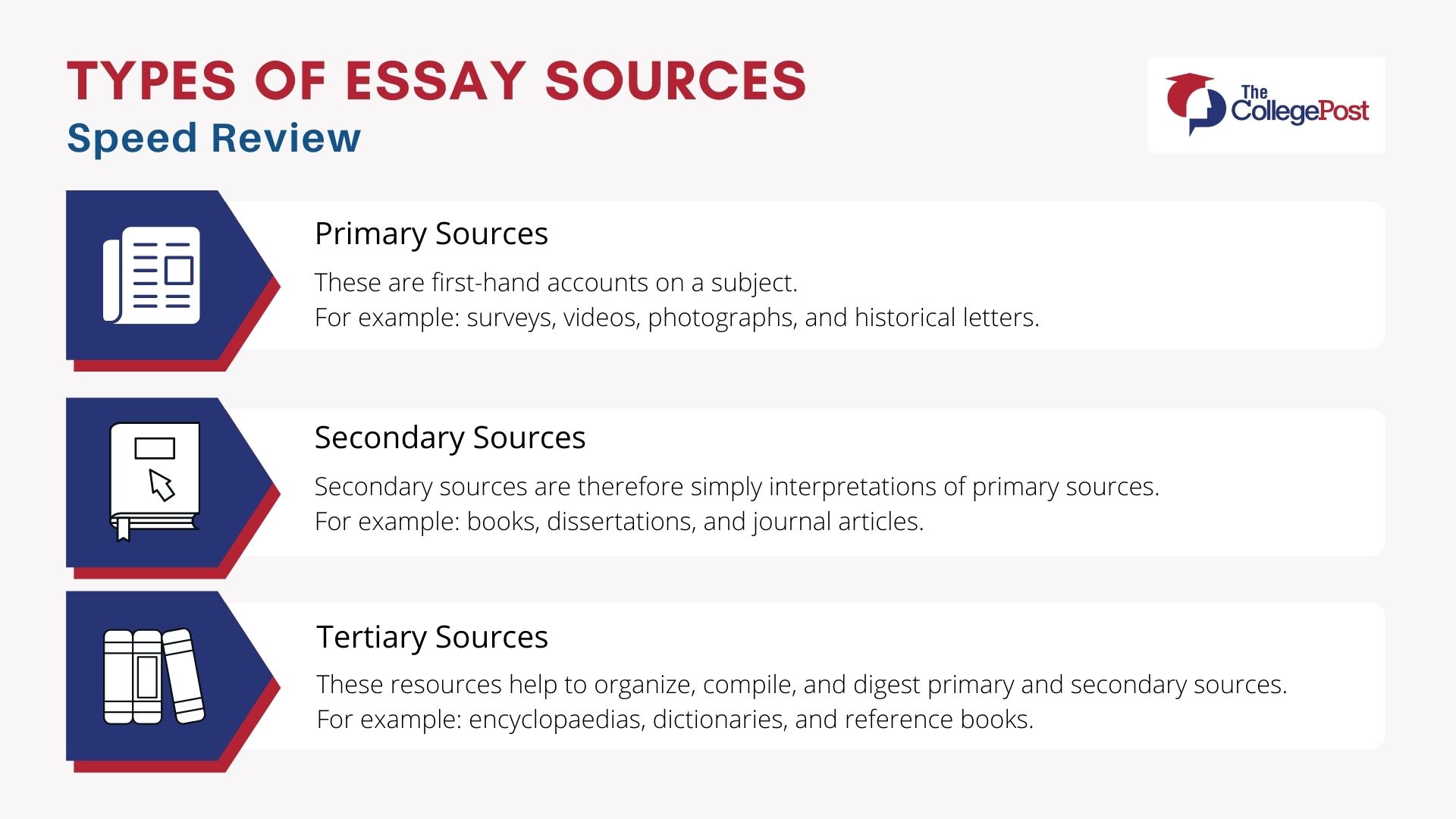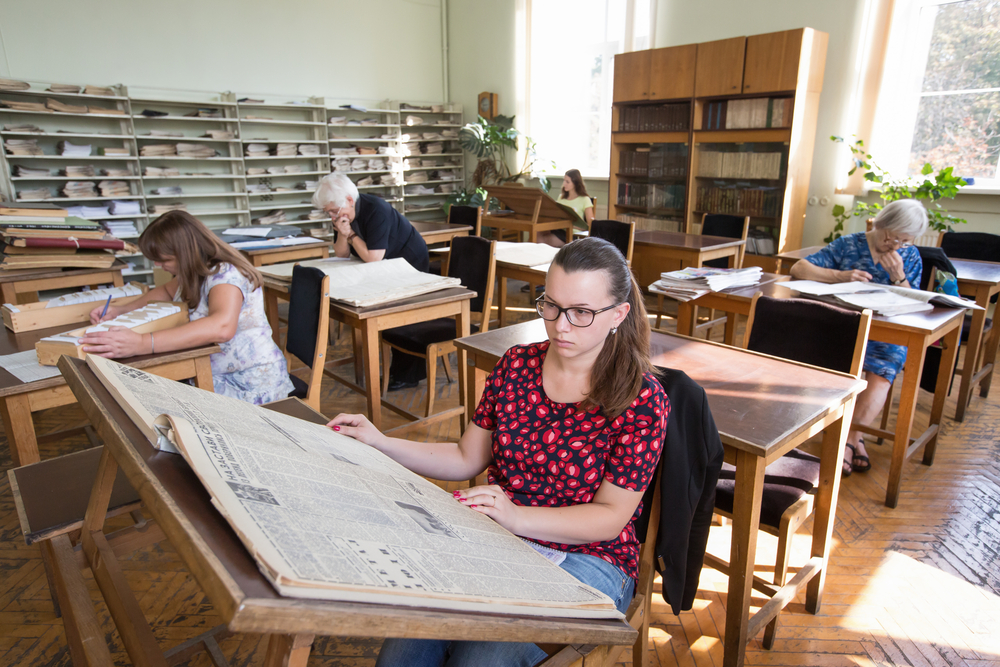Writing a good college essay can be tough and time-consuming. It will cost you several trips to the library, hours of pouring over your notes, and sleepless nights scouring online databases. ⏳
And while the internet is a huge pool of information, it is crucial to identify and use credible sources. So, the big question is: How can you find the right academic references for your college essay?
Here’s a guide to finding essay sources that will impress your professor and get you that well-deserved A! 🔍
Start With Wikipedia
Yes, we all know academic researchers frown upon Wikipedia since it’s user-generated (so anyone can write anything). But it’s actually a great springboard to get an overview of your essay topic. 💻
At the bottom of each Wikipedia page, you’ll find a treasure trove of legitimate sources and citations that you can use in your essay.

Check Out Primary Sources
Primary sources are the building blocks of any research project. They must serve as the foundation of your research, whereas secondary sources should inform and supplement the primary sources.
Primary sources are first-hand accounts on a subject, often unedited, that offer a close, personal overview of a topic. They encourage students to read between the lines and approach them with a critical mindset. 🤔

When analyzing primary sources, ask yourself key questions like, “Who is the intended audience?” or “What does the source tell me about the period?”
By considering these questions, you can effectively understand the historical context and cultural perspectives and avoid potential bias or inaccuracy. This will also help you develop well-supported arguments and strengthen your essay. 💪
Get the Most Out of the Library
Students may gravitate toward online research but the good old library is still a trusted source of information. In fact, 58 percent of Americans aged 16 and older have a library card — and for good reason!
Library databases allow you to efficiently search for published information, such as magazines, journals, and newspaper articles.
These sources contain scholarly articles by notable authors, journalists, and researchers. If you hit a paywall for a journal or newspaper, verify if your library has a subscription — problem solved! ✅

But the most underutilized tool in libraries is the staff. Librarians know all about research methods, using information systems, statistics, and management.
They’re experts when it comes to finding the information you need. All you have to do is ask your university librarian for help finding top-tier resources on your essay topic. 📚
Recap: Scholarly Sources vs. Peer-Reviewed SourcesScholarly sources are written by experts for other experts, researchers, or students. Peer-reviewed sources do the same thing but go a step further. These sources are reviewed by the author’s peers who are experts in the same subject area. That means a peer-reviewed source is almost always more credible than a scholarly source. |
Use Academic Search Engines
Let’s get this straight: It’s hard to write a research paper without consulting the internet.
Most of us start our search with Google, but unfortunately, search engines don’t always churn out credible results. That’s why it’s crucial to explore other portals with an academic focus when searching for essay sources. ⚠️
Check out these options:
- BASE: The Bielefeld Academic Search Engine (BASE) contains 4,000 sources and provides search results from more than 100 million documents. They also offer an advanced search option that allows users to narrow down their research. The BASE advanced search lets users use filters such as author names, publication dates, and document types to find more relevant results, saving time and improving academic research efficiency.
- Refseek: A web search tool for students and researchers. You can access over a billion documents, books, newspapers, and journals without getting distracted by ads or sponsored links.
- Google Scholar: This connects you with hundreds of relevant scholarly journals. What’s more, it provides formatted citations in MLA, AP, or APA that you can export to RefWorks or BibTex.
- JSTOR: The platform provides a large collection of academic journals, books, and original sources from a variety of subjects.
- PubMed: This includes articles from scholarly journals and research institutes with a focus on biomedical and life sciences research.
- LexisNexis Academic: It focuses on researching legal and news-related subjects, including reports, legal publications, and court cases.

Opt for Digital Libraries and Databases
Digital libraries have specialized collections in all fields of study. They are easy to access and contain millions of books, audiobooks, journals, and videos that can help you further your essay research.
The best part? No more waiting for popular books to become available! Digital libraries let you read and download content instantly, anytime, anywhere, using your computer or phone. 📱
Of course, there may be some occasions where you’ll find your university doesn’t have access to a particular online database.
If you’ve found the perfect journal article but can’t get access, try emailing the professor who wrote it and ask for a PDF — most academics will be quite happy to provide you access to their work. 📧

Don’t Forget the Bibliography of Your Sources
After you have a list of credible sources, take a closer look at their citations. Seek out the primary sources these citations used for research. This will open up a new set of materials to work with for your essay. 🗒️
Plus, they often contain references to publications that make alternate viewpoints or offer diverse interpretations of the topic at hand.
TIP: Once you start your research, you may find the same sources pop up over and over again. Consult Google Scholar to see the articles in a publication that are cited the most (along with who cited them). Make a list of these and incorporate them in your essay.
Look Beyond Journals and Books
The world of research is your oyster, and with a diverse array of sources, your academic essay can shine if you dare to explore the unconventional.
Peruse through thrilling audio and video recordings that transport you to historic moments or cultural events, or explore interviews with experts who can add personal insights and real-life perspectives to your essay. 🎧

Incorporate variety in the resources you add to make your essay an interesting read. This will also show your professor that you’ve gone above and beyond to create a well-researched essay. 👌
Note: Critically assess the reliability and validity of sources outside of the conventional academic channels because their level of accuracy may vary. Always check the author’s qualifications, and the reputation of the source, and cross-reference information from various sources.
Learn to Quickly Evaluate a Source
Essays and research papers come with deadlines. In an ideal world, you would meticulously examine each potential essay source, but there’s a smarter way to do it to save time! 🗓️
Here’s a helpful approach to evaluating a source: First, read the abstract or introduction of the source to decide if it’s useful for your work.
Then, take a look at the citations and references at the end of the source. You can also check the publication date to ensure the information is current.
If it’s an online source, check out the domain name. Sites with .edu domains are associated with educational facilities, while .gov domains belong to government agencies. These sources are generally reliable due to their affiliation with reputable institutions.
Additionally, examine the author’s credentials and expertise in the field. Look for authors who have relevant academic backgrounds or professional experience related to the topic. ✍️
Lastly, consider the reputation of the publisher. Reputable publishers are known for maintaining high standards of quality and accuracy in their publications.
Don’t know where to start? Check the publisher’s website, browse through its publication list, and look for details about its editorial board and reviewers. 🧐
Putting together a top-notch essay is a Herculean task — but if you can collect the right resources you’re already halfway there! 💯
The Easy Guide to Finding Essay Sources: Frequently Asked Questions
What are academic sources?
Academic sources are dependable and trustworthy documents created by subject-matter specialists and distributed by respectable publishers or academic publications.
They go through an exhaustive screening procedure and frequently contain citations or references to other academic publications.
How do I find trustworthy sources for my academic research?
Start with reputable sources such as scholarly journals and books from respected publishers. Consider the expertise of the author and the publisher’s reputation, and look for sources that have undergone the peer review process.
Check the publication date to ensure the information is current. Be aware of potential biases in the sources and evaluate the evidence provided.
What are the best sources for essays?
The best sources for essays are those that offer accurate and up-to-date information.
Scholarly journals, expert books, government websites, academic databases, credible websites with specific domains (.gov,.edu, and .org), must-read books related to the topic, secondary readings for additional insights, scholarly sites, scientific papers, and reliable news and interviews are examples of these.
How do I include a source in an essay?
Introduce the source with an initial phrase. Then, summarize, paraphrase, or quote the material as needed and provide proper citations.
When directly quoting the source, use quotation marks and cite the author, year, and page number.
For summarizing, briefly present the main points and cite the author and year. When paraphrasing, restate the information in your own words and cite the author, year, and page number.
Include relevant details about the author, title, and genre when citing the source for the first time. Each college may have varying guidelines for sourcing, so it’s important to check with your institution what is required.


